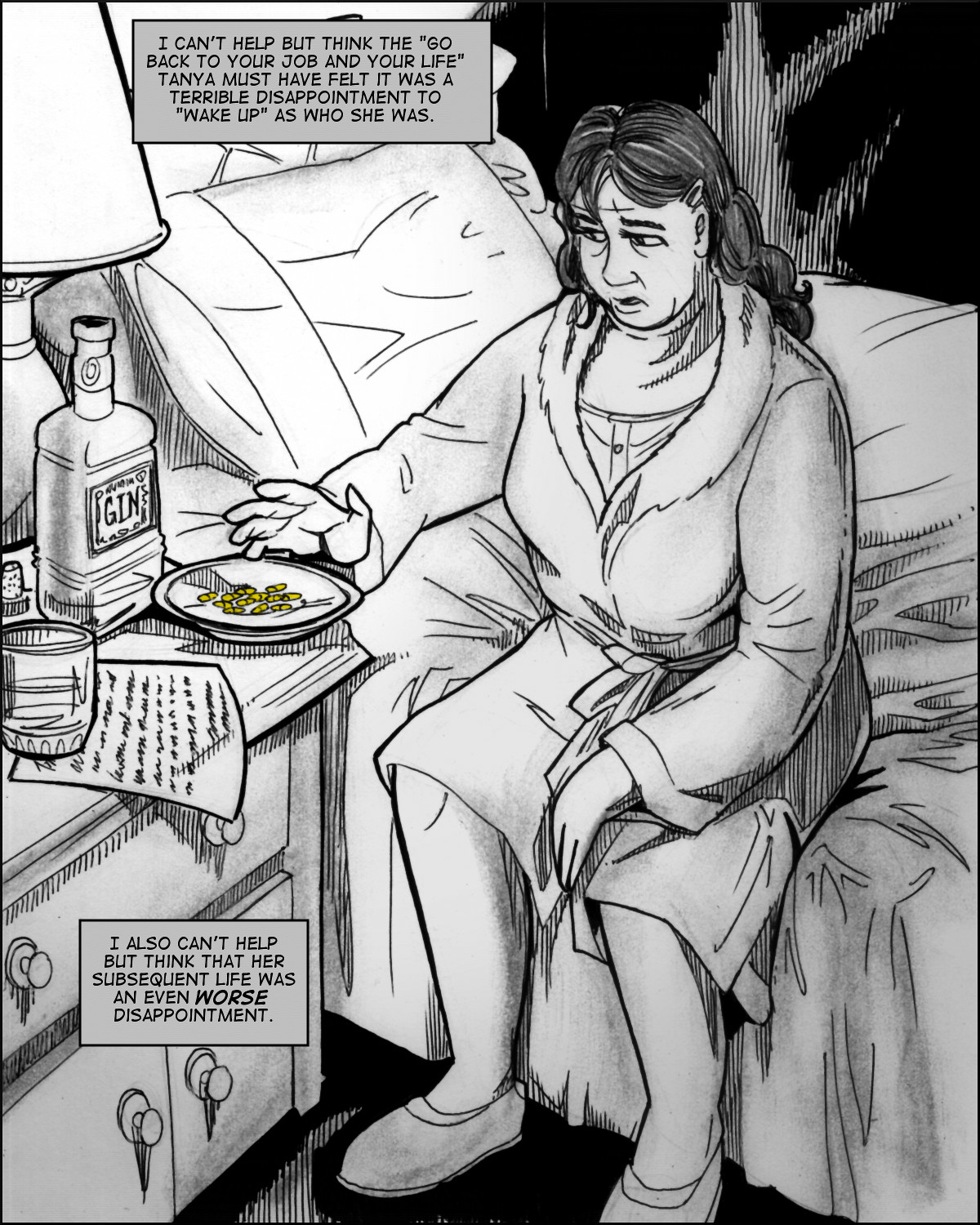Whatever Tanya was meant for in the world, employment as a salaried professional appears not to have been it.
(Click on the image for larger size. 
Gnosis Transformations: Chapter Eight, Page Sixteen written and commissioned by Dr. Faustus of EroticMadScience.com and drawn by Lon Ryden is published under a Creative Commons Attribution-NonCommercial-NoDerivs 3.0 Unported License.)


I wonder if that copy of Tanya ever wondered why she woke up in a bed with a passport and went back to America and especially if she ever wondered why she was doing in Japan in the first place especially if she even remembers how she got there and why she went there at all…
Her scan was made after her going to Japan, hearing Iris’s proposal and consenting to it, so presumably any copy of her made from that scan would have memories of at least that, even if for this procedure they never integrated transmitted memories (see the Iris episode in Study Abroad) into the copy.
What I find interesting is a dawning realization of the psychological impact of some of this mad science, both on the experimenter and the subject. Iris in particular has had several people killed (or changed beyond recognition). I wonder if her former focus on philosophy will eventually cause her to question this.
I don’t think it’s likely because she had her own reasons why they were killed or changed without recognition in the first place while Iris might be seen as a ‘monster’ to outsiders or people like you.
While forgetting the fact that the real monsters happen to be ones she killed or changed without recognition hence that…
There are optimistic and pessimistic views about what the study of philosophy does. It might make us question what we do. Or it might just make us more supple in rationalizing what it is we want to do anyway. A debate as old as Socrates and the sophists, I know.
(There’s an even more pessimisic view that philosophy can lead us into dark places and make us nuts, of course.)